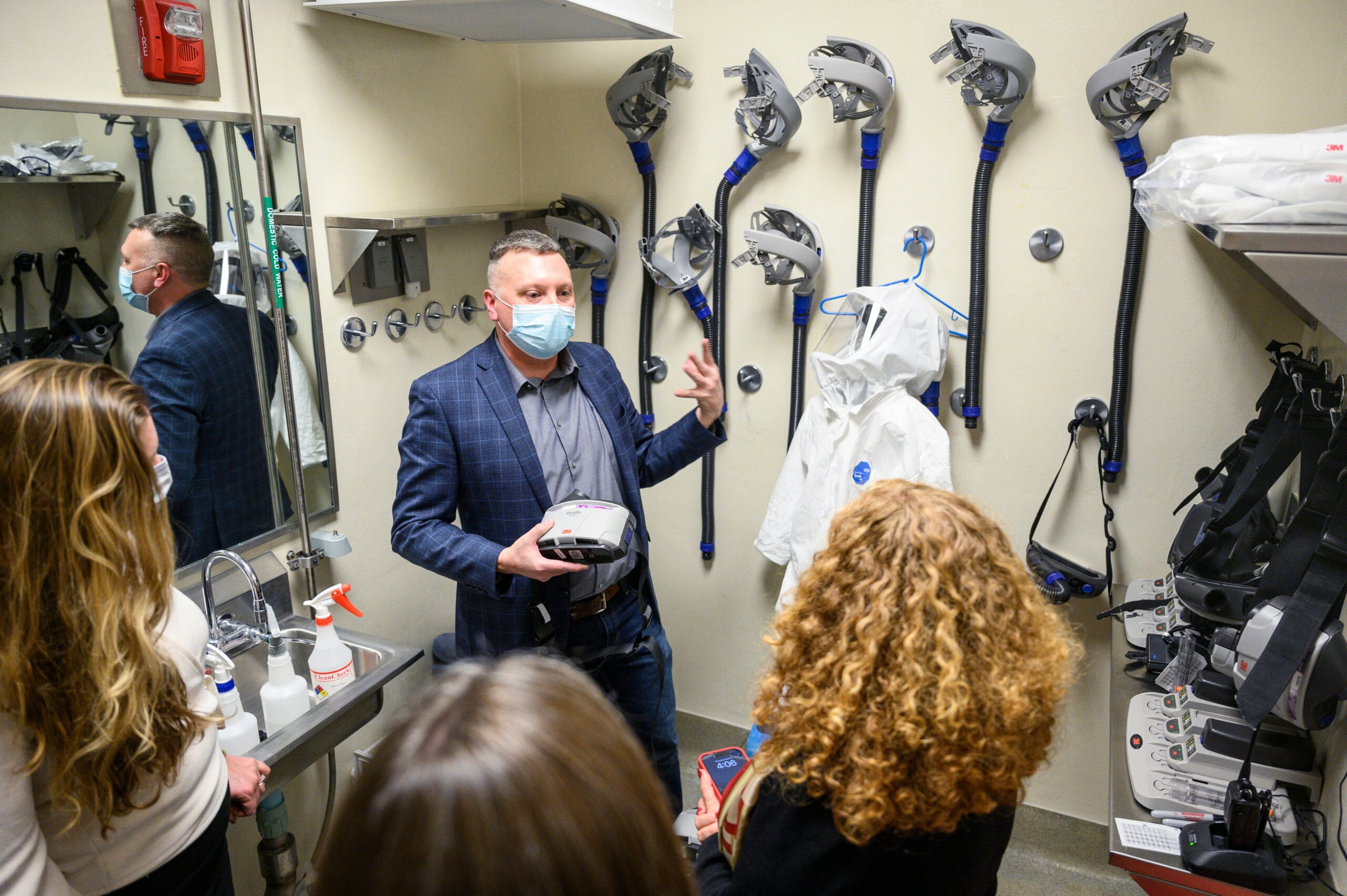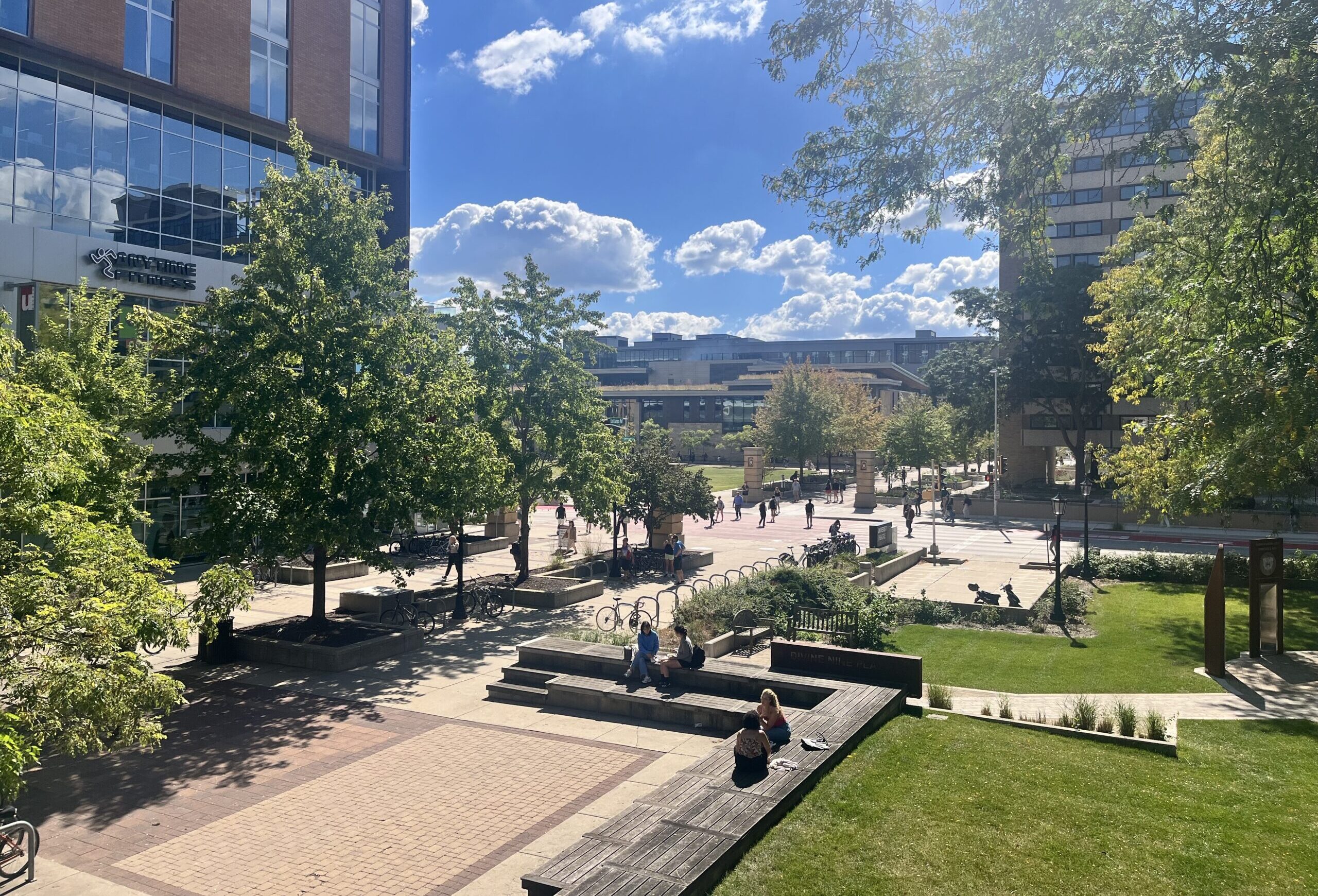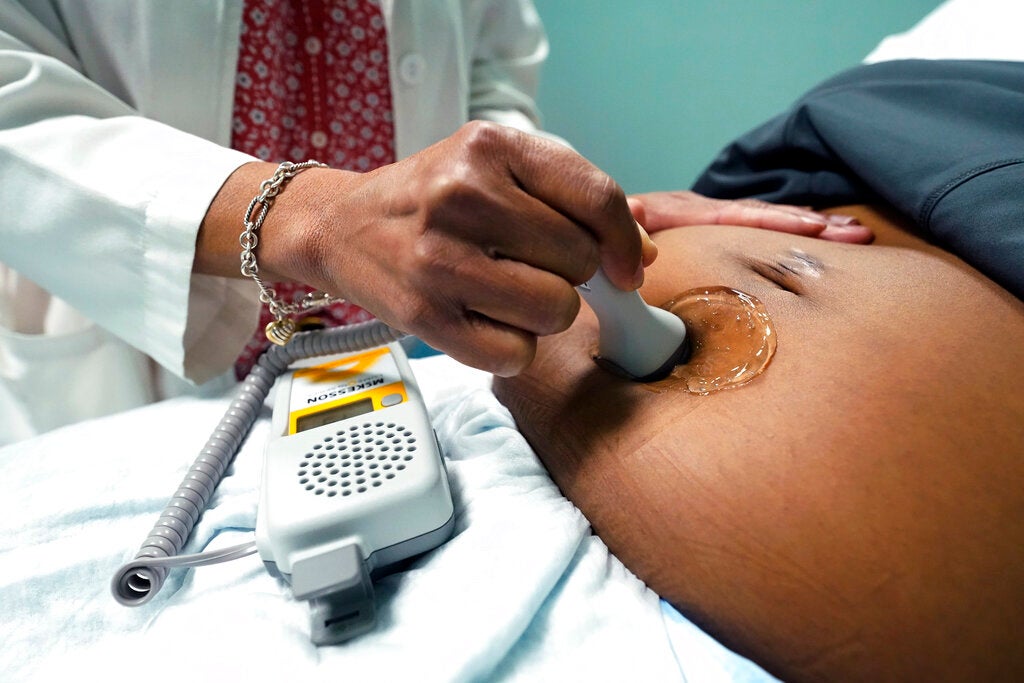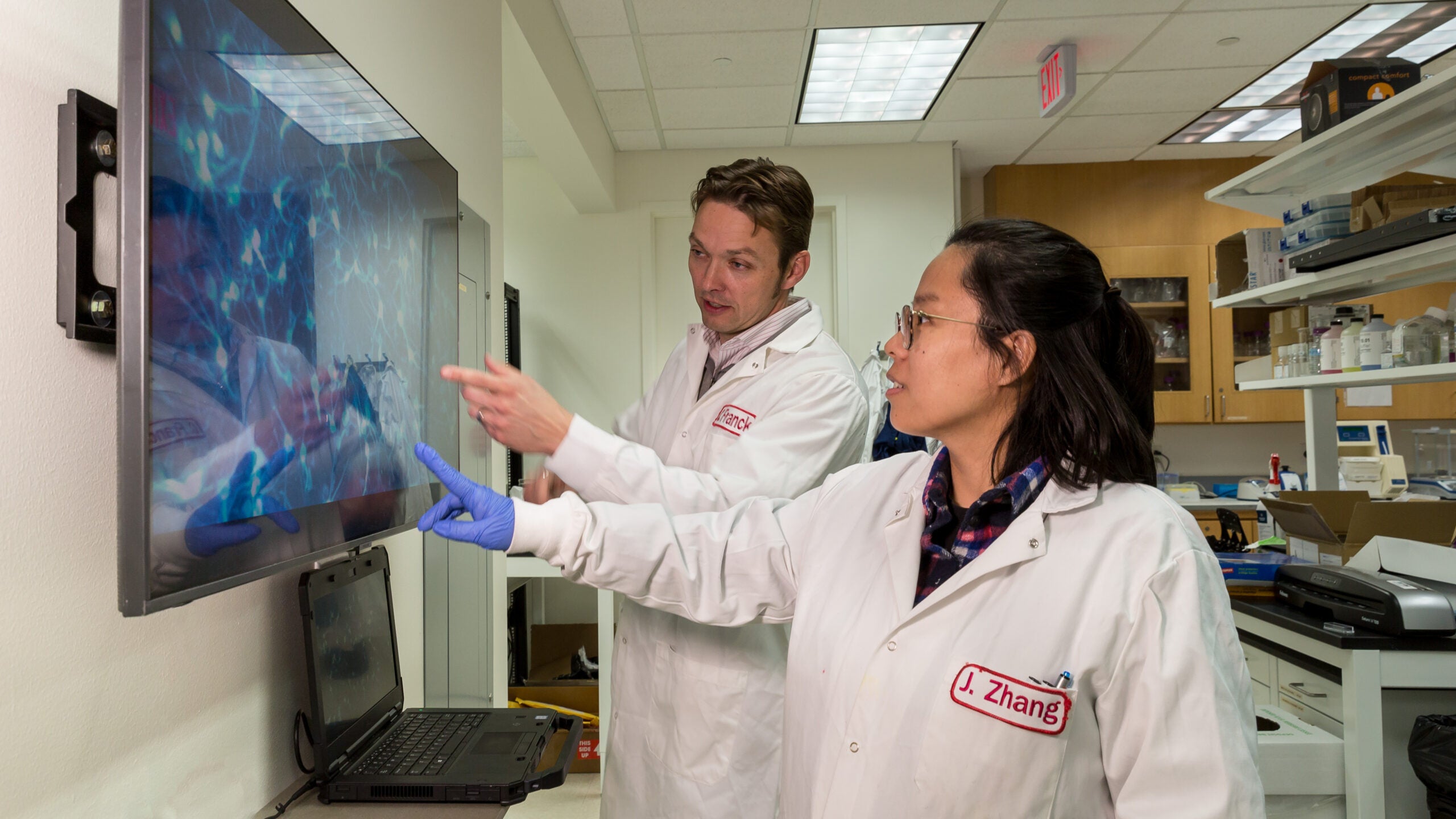Scientists studying viruses at the University of Wisconsin-Madison recently opened their lab door for a tour, looking to shine a light on their work after being targeted by a Republican bill.
The legislation would have prohibited some of the research that has been done in the past in Madison. Researchers defended the science targeted by the bill as safe and valuable for understanding the emergence of pandemic viruses.
Representatives of the UW’s Influenza Research Institute said the tours are given annually when the lab is closed for maintenance and a thorough decontamination. While the timing of the event was not tied to the proposed legislation, researchers said the tours offer politicians the chance to see their facility firsthand.
Stay informed on the latest news
Sign up for WPR’s email newsletter.
The controversy surrounding the lab involves so-called “gain-of-function” research, which has been used to make pathogens more virulent or transmissible.
The lab has not done any of that research since 2014 when the National Institutes of Health halted funding on such projects. While the government allowed that type of research to resume in 2019, it has not been conducted at the Wisconsin lab in the last 10 years.
For decades, the world’s leading scientists have debated the merits of such experiments. But Dr. Yoshihiro Kawaoka, the virologist who runs the lab, is one of its leading proponents.
“The goal of my research is to improve global health,” Kawaoka said in a brief presentation.
He said he has been studying influenza viruses for 40 years.
The lab has developed reverse genetics technology for influenza viruses, which has been used to make the nasal spray flu vaccine Flumist and bird flu vaccines. Kawaoka has also studied the Ebola virus and completed a human clinical trial with an Ebola vaccine.
Peter Halfmann is an associate research professor in the lab. He accompanied Kawaoka to study Ebola in Sierra Leone.
“We look at why respiratory viruses cause disease and what makes one virus be very pathogenic or highly transmissible,” Halfmann said.
Halfmann said gain-of-function research can include experiments to change the way a virus transmits — say, from being bloodborne to transmitting by aerosol droplets. Or a virus could be manipulated to be resistant to a certain vaccine or antiviral therapy.

The research occurs in a high-security facility behind airlocked doors. Anyone entering must stand in a vestibule between two such doors, the latter of which will only open once the first has been sealed entirely.
Everyone who works there must pass a high level security clearance. While there are no undergraduate employees, there is currently one graduate student and seven postdoctoral trainees working there.
Researchers enter with two pairs of scrubs, a towel and a set of special shoes. Outside clothes and shoes are kept in a locker. Everyone must shower in order to exit the lab – even to use the restroom.
“Takes about 20 minutes to get out,” Halfmann said, so he reminds people to use the restroom before entering.
“We hate for someone to get in and then get out right away,” he said.
There are redundancies and alarms for every system, and continuous remote computer monitoring, Halfmann said. The lab’s air is HEPA filtered, wastewater is decontaminated, and the building has a backup generator that can turn on in seconds if they ever lose power from the city.

‘Gain-of-function’ was used to transmit bird flu between ferrets
In 2011, Kawaoka submitted research to the National Science Advisory Board for Biosecurity and the journal Nature that showed he had adapted the H5N1 bird flu so that it could infect a mammal. He said he used ferrets because they show flu-like symptoms similarly to humans.
On the tour, Halfmann showed side-by-side “isolator units” where the ferrets were kept. HEPA filters are sealed on each side of the cages.
“So when (Kawaoka) was talking about airborne transmission, we had the infected ferret here,” Halfmann said, pointing to one cage. “And then it can transmit virus, potentially, to the contact here.”
While this sort of pathogen research has long been controversial, the COVID-19 pandemic only worsened the political atmosphere, Halfmann said.
Skeptics link the virus to gain-of-function research conducted at China’s Wuhan Institute of Virology. A report declassified last year said U.S. intelligence agencies found no direct evidence the virus came from a lab, but could not rule out either laboratory or wild origins.
The bill in the state legislature this year would have ended all gain-of-function research at higher education institutions in the state, and cut funding from any university that continued such experiments.
The state Assembly did not vote on the proposal before adjourning last month. But there are ongoing efforts in other states, and at the federal level, to curtail the research.
The bill received hearings in the state Assembly and Senate. It defined a “potentially pandemic pathogen” to mean a virus, bacteria, fungus or eukaryotic parasite, or any strain or variant of a virus, bacteria, fungus or eukaryotic parasite.
Written testimony from UW-Madison and the Medical College of Wisconsin said the bill could have interfered with research on the common cold viruses, RSV and pneumonia. Studies looking at how HPV and COVID-19 drive dementia and Alzheimer’s disease could have also been impacted, according to the letter.
Even experts who supported the bill said the definitions were too broad.
Bryce Nickels, a professor of genetics at Rutgers University, testified in favor of the bill on behalf of Biosafety Now. The group seeks to regulate pathogen research and increase the public’s role in oversight.
Nickels said he would have changed the definitions of “gain-of-function” and “potentially pandemic pathogen” to target only the research that has been done in the past at the UW-Madison lab.
Given the concerns about the lab, Halfmann said annual tours are offered to reporters, university communications personnel, state health officials, emergency responders and elected officials.
But the critics don’t accept the offers for a tour, Halfmann said.
“We don’t get the politicians to come and visit our lab. Which is unfortunate because they really don’t know what is going on in the lab,” he said.
Halfmann said the lab is waiting in part on expected guidelines from the federal government on gain-of-function research.
“The type of studies that we propose are going on on a much larger level in nature too,” he said, when viruses jump between species and become more dangerous.”
“And it would be unfortunate if something would happen and we would be unprepared because researchers have been afraid or nervous to do this kind of research in their labs,” he said.
At the Assembly hearing on the bill, Nickels disagreed.
“Sometimes you can learn an enormous amount about how these viruses work, and about how they might spill over into the human populations without actually making a virus that will do that,” he said.
Editor’s note: This story has been updated to clarify that scientists defended the research targeted by recent proposed legislation. They called the research safe and valuable for understanding the emergence of pandemic viruses.
Wisconsin Public Radio, © Copyright 2025, Board of Regents of the University of Wisconsin System and Wisconsin Educational Communications Board.





